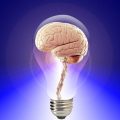Table of Contents
Do I have Huntington’s disease? Huntington’s condition is a genetic problem in which your brain’s afferent neuron gradually breaks down. Do I have Huntington’s disease? This influences your physical movements, feelings, as well as cognitive capacities. There is no remedy, yet there are methods to manage this illness and its signs and symptoms. Do I have Huntington’s disease? Huntington’s illness is much a lot more common in individuals with European ancestry, affecting regarding 3 to seven out of every 100,000 people of European descent.
Adult Symptoms Onset
Adult start is one of the most typical kind of Huntington’s condition. When individuals are in their 30s or 40s, symptoms usually begin. Initial signs commonly consist of:
- anxiety
- impatience
- hallucinations
- psychosis
- small involuntary movements
- poor coordination
- problem recognizing new details
- difficulty making decisions
Symptoms that may happen as the disease progresses consist of:
- unrestrained shivering activities, called chorea
- trouble strolling
- difficulty swallowing as well as speaking
- complication.
- memory loss.
- personality adjustments.
- speech modifications.
- decrease in cognitive capabilities.
Early Onset
This kind of Huntington’s disease is much less typical. Signs and symptoms usually begin to appear in childhood or adolescence. Early-onset Huntington’s illness creates psychological, psychological, and also physical adjustments, such as:
Causes
A flaw in a single genetics causes Huntington’s disease. It’s taken into consideration an autosomal dominant problem. This suggests that a person duplicate of the abnormal genetics suffices to cause the illness. If among your parents has this hereditary problem, you have a 50 percent chance of acquiring it. You can likewise pass it on your children.
Genetic Anomalies
The genetic anomaly liable for Huntington’s disease is various from numerous various other mutations. There isn’t a replacement or a missing out on section in the gene. Rather, there is a duplicating error. An area within the genetics is copied way too many times. The variety of repeated duplicates often tends to enhance with each generation. As a whole, symptoms of Huntington’s illness show up previously in people with a larger variety of repeats. The condition additionally proceeds much faster as more repeats develop.
Diagnosis
Household background plays a significant function in the medical diagnosis of Huntington’s illness. A selection of medical and also laboratory screening can be done to assist in diagnosing the issue.
Imaging Tests
If you have actually had seizures, you might require an electroencephalogram (EEG). This test gauges the electrical task in your brain. Brain-imaging examinations can likewise be used to spot physical adjustments in your mind.
Magnetic resonance imaging (MRI) checks usage magnetic areas to tape-record brain images with a high level of information. On the other hand, calculated tomography (CT) scans combine a number of X-rays to produce a cross-sectional picture of your brain.
Psychiatric Tests
Your medical professional could ask you to go through a psychological evaluation. This assessment checks your coping abilities, psychological state, and behavior patterns. A psychiatrist will certainly additionally look for indications of impaired thinking. You might be examined for drug abuse to see if medicines could explain your symptoms.
Genetic Testing
Your doctor could advise hereditary testing if you have actually several signs and symptoms linked with Huntington’s illness. A hereditary examination can definitively identify this problem. Genetic testing might additionally help you decide whether to have youngsters. Some individuals with Huntington’s do not want to risk passing the defective genetics to the following generation.
Treating Huntington’s Disease
Drugs can supply remedy for some of your physical and also psychological signs and symptoms. The types as well as quantities of medications needed will certainly change as your condition advances.
- Involuntary motions might be treated
with tetrabenazine and antipsychotic medications.
- Muscular tissue rigidity as well as involuntary contraction can be treated with diazepam.
- Clinical depression and other psychiatric symptoms can be treated with antidepressants and also mood-stabilizing medicines.
Therapy
Physical treatment can aid enhance your versatility, sychronisation, and also equilibrium. With this training, your mobility is boosted, as well as falls may be avoided.
Speech Treatment
Speech treatment might have the ability to assist you speak clearly. You will certainly be instructed other types of communication if you can not talk. Speech therapists can additionally aid with swallowing and also eating problems. Psychotherapy can assist you resolve emotional and also mental issues. It can additionally aid you develop dealing abilities.
In Summary
There is no chance to stop this illness from progressing. The rate of development differs for every individual as well as relies on the variety of hereditary repeats existing in your genetics. A reduced number generally indicates that the condition will advance more slowly.
Individuals with the adult-onset type of Huntington’s condition usually live for 15 to two decades after signs and symptoms begin to appear. The early-onset kind generally advances at a faster rate. People may live for only 10 to 15 years after the onset of signs.






 I love to write medical education books. My books are written for everyone in an easy to read and understandable style.
I love to write medical education books. My books are written for everyone in an easy to read and understandable style.
